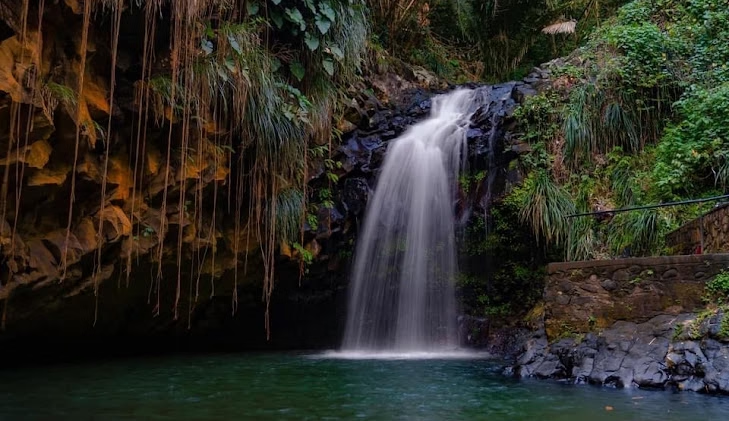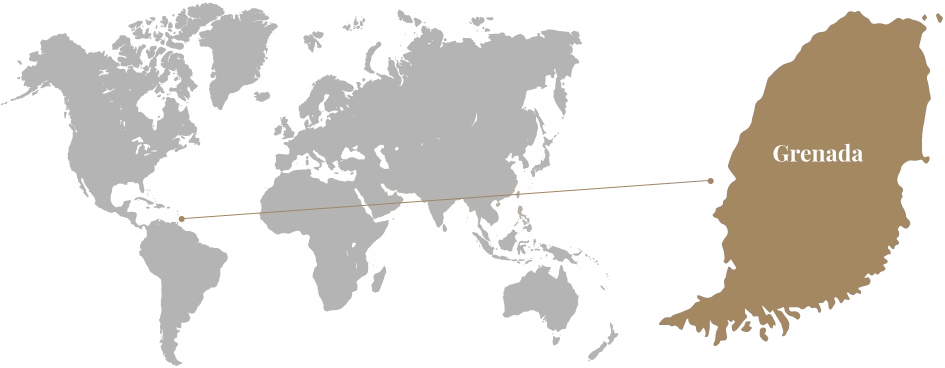CITIZENSHIP BY INVESTMENT PROGRAM
Grenada
Minimum Investment
$235,000
Visa-free countries
140+
Fast-Track Passport In Just
6-8 Months
Grenada Citizenship and Passport by Investment
In today’s globalized world, the demand for mobility, security, and financial freedom is higher than ever. One of the most effective ways to achieve this is through Citizenship by Investment (CBI) programs. Among these, the Grenada Citizenship by Investment program stands out as a premier option for investors seeking global opportunities, tax advantages, and access to key markets such as the USA and UK. Successful applicants can also obtain a Grenada passport by investment, unlocking visa-free travel, enhanced mobility, and long-term security for themselves and their families.
Overview of the Grenada
Grenada, often called the “Spice Island,” offers a Citizenship by Investment (CBI) Program that grants investors and their families Grenadian citizenship in exchange for a qualifying financial contribution. Established in 2013, the program provides visa-free or visa-on-arrival access to more than 140 countries, including the Schengen Zone, China, and the United Kingdom.
Relocating To The USA
Grenada is the only Caribbean country whose citizens (including Economic citizens) are eligible to apply for a USA E-2 visa (under a treaty entered into between the United States of America and the Government of Grenada).
E2 visa applications for Grenada citizens is processed through the U.S Consulate in Barbados. The E2 work visas are issued for 5 years and are renewable indefinitely as long as the business is operational.

Where is Grenada?

Benefits
- Process within 6 -8 months
- Access to the USA E-2 visa program
- No physical residency requirement in Grenada before, during or after application
- Dual Citizenship
- Visa free access to 140+ countries
- Children under 30 years, parents over 55 years and unmarried siblings can be part of the application
Investment Options
Option 1
Contribution (National Transformation Fund)
The applicant is required to make a non-refundable contribution to the National Transformation Fund based on number
of dependents being included in the application. The Government utilizes the NTF to finance various projects in Grenada
for the benefit of its many industries including tourism, agriculture, and alternative energy.
Single Applicant
$235,000

Main applicant and spouse
$235,000

Main applicant plus 3 qualifying dependents
$235,000
Per additional qualifying dependent
$25,000
*Each additional unmarried sibling at least 18 years of age USD 75,000.
*Each additional dependent parent over 55 years of age USD 50,000.
*Applicants must also pay all required due diligence, application and processing fees.
Option 2
Real Estate Acquisition
Applicants may purchase property valued at a minimum of USD 270,000 in a Government-approved Real Estate
development such as hotels, villas, and resorts and retain the investment for at least five years.
INVESTMENT

NUMBER OF APPLICANTS
Single Applicant
Main Applicant + Spouse
Family of 4 members
GOVERNMENT FEES
*Plus USD 25,000 per each additional dependent
*Each additional unmarried sibling at least 18 years of age USD 75,000.
*Each additional dependent parent over 55 years of age USD 50,000.
*Applicants must also pay all required due diligence, application and processing fees.
Eligibility Requirements

No Criminal Record

Good Health

Be able to verify source of funds

Contribution to the Government
Real Estate Acquisition

Application Steps And Timeline
File Preparation And Submission
• Gather identity and other supporting documents

• Pay relevant Government Due Diligence fees

• File Submission to Citizenship By Investment Unit

Processing Time
• The Unit reviews the application, source of funds and carry out the due diligence checks

Compliance Time
• Settle the Government Contribution or Purchase a Real Estate

• Oath of Allegiance

• Certificate of Registration issued

• Issuance of Passport

Why Work With Us?

Decade of
Experience

Government
Authorised Agent

Tailor Made
Solutions

Success
Rate

Strict
Confidentiality
Grenada Citizenship by Investment Committee
Frequently Asked Questions
1. What is the Grenada Citizenship by Investment Committee?
The committee is the government body responsible for reviewing, vetting, and approving all applications under the Grenada CBI Program.
2. Who can apply for the Grenada passport by investment?
Eligible investors with a clean background can apply and include their spouse, dependent children, and parents through an approved investment option.
3. What is the current processing time?
The typical processing time is 6 to 8 months, depending on documentation and background checks.
4. What are the investment options for Grenada citizenship?
Applicants can invest in government-approved real estate (minimum USD 270,000) or contribute to the National Transformation Fund (minimum USD 235,000).
5. Can my family members be included in the application?
Yes. Spouse, dependent children, parents, grandparents, and unmarried siblings can be added.
6. Do I need to live in Grenada to maintain citizenship?
No. There is no physical residence requirement before or after obtaining citizenship.
7. What are the benefits of Grenada citizenship?
- a. Visa-free access to over 140 countries.
- b. Eligibility for the U.S. E-2 Investor Visa, which allows you to live and work in the U.S.
- c. Dual citizenship is allowed, so you can keep your original nationality.
8. Is the application process confidential?
Yes, the entire process is confidential, and your personal information will be kept private.
9. How to get citizenship in Grenada?
You must make a qualifying investment either by donating to the National Transformation Fund or buying approved real estate, submit required documents, pass due diligence checks, and the government will grant citizenship once approved.
10. What are the benefits of a Grenadian passport?
A Grenadian passport offers visa-free or visa-on-arrival travel to over 140+ countries, allows dual citizenship, and makes you eligible to apply for a U.S. E-2 investor visa
11. How much does it cost to become a Grenada citizen?
The minimum investment starts at around USD 235,000 for a contribution to the National Transformation Fund or USD 270,000 in government-approved real estate, plus due diligence and government fees.
Other Citizenship Options
-
St.Kitts & Nevis Citizenship Program
St. Kitts & Nevis is located in the northern section of the eastern Caribbean Sea approximately 2,000 km2 southeast of Miami (USA). Independence was gained from Britain in 1983 and a twin island federation was formed; Nevis with an area of 93.2 km2 and St. Kitts with 168.4 km2.
-
antigua and barbuda passport by investment
Antigua also known as Waladli or Wadadli by the native population is an island in the West Indies. It is the Leeward Islands in the Caribbean region and the main island of the country of Antigua and Barbuda. In November 1981, Antigua & Barbuda became an independent nation within the Commonwealth Nations.
-
Grenada Citizenship and Passport by Investment
Grenada is also known as the ‘Isle of Spice’ and is one of the most magnificent islands in the West Indies. The nation of Grenada measures 344 km2. It is composed of three main islands: Grenada, Carriacou and Petite Martinique. The proximity of Grenada to the equator ensures a tropical climate with average temperatures of 23°C and 28 °C.
-
Malta Citizenship by Investment
Malta is a neutral, safe and stable country with friendly people living a European lifestyle but with a Mediterranean quality of life. It is a densely populated country where the majority of the population lives in the north side of the country. The Republic of Malta is the place if you want to enjoy the Mediterranean quality of life whilst living a European lifestyle
-
Saint Lucia Citizenship By Investment Program
Known as the ‘Helen of West Indies’, St Lucia is located in the East of the Caribbean Sea and it is considered to be one of the most politically and economically stable countries in the region – which factors have served to attract foreign business and investment. The economic lifeline of Saint Lucia is the tourism industry, followed by crop export and manufacturing.
-
Vanuatu Citizenship Program
Vanuatu, officially known as the Republic of Vanuatu, is an archipelago nation, spread across 82 islands in the south Pacific Ocean. The country’s capital and largest city are Port Villa and its official languages are Bislama, French and English – though over 100 languages are estimated to be spoken locally. The local currency is the Vanuatu VATU.
 ENGLISH
ENGLISH  Arabic
Arabic Persian
Persian 





